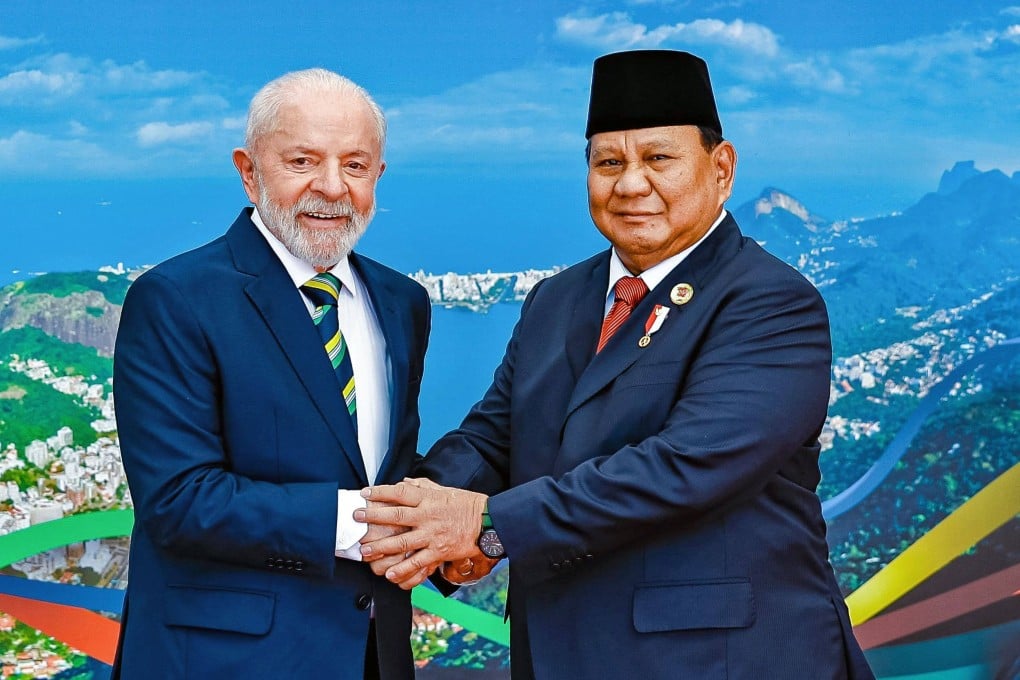Indonesia Joins BRICS as Full Member
Indonesia has officially become a full member of the BRICS group, as announced by Brazil’s government. Indonesia’s foreign ministry expressed that this membership is vital for strengthening partnerships with other developing nations.
Background of BRICS
- BRICS is an acronym representing Brazil, Russia, India, China, and South Africa. The group was informally established in 2006 and formalised in 2009.
- The inaugural summit took place in Yekaterinburg, Russia.
- South Africa joined the following year, expanding the group’s influence.
- BRICS has since included additional members, including Iran, Egypt, Ethiopia and UAE, reflecting its growing prominence in global affairs.
- The intergovernmental organization is currently looking to cement its reputation as an alternative to G7 grouping, which is led by the US.
- Over 30 nations, including Southeast Asian countries like Thailand, Malaysia, and Vietnam, have shown interest or applied for BRICS membership.
Indonesia’s Membership Process
Indonesia’s journey to BRICS membership began with its long-standing interest in joining the bloc. The approval for its membership occurred at the 2023 summit, with Brazil’s presidency facilitating the process. Indonesia chose to finalise its membership after its 2024 presidential election, which led to President Prabowo Subianto taking office in October.
Goals of BRICS Membership
Indonesia’s foreign ministry stated that BRICS membership represents a strategic step towards enhancing collaboration with other developing nations. The principles of equality, mutual respect, and sustainable development underpin this commitment. BRICS members share a common goal of reforming global governance institutions, encouraging cooperation within the Global South.
Economic Significance of BRICS
The BRICS group collectively represents approximately 3.5 billion people, accounting for 45% of the global population. The combined economies of its members exceed USD 28.5 trillion, representing around 28% of the world’s economy. The inclusion of new members like Indonesia, Iran, and the UAE strengthens the economic clout of BRICS, making it a formidable player in international trade.
Geopolitical Importance of BRICS Expansion
- Access to substantial energy reserves, particularly from Saudi Arabia and Iran, is crucial for the group’s energy cooperation. Russia’s diversification of energy markets through BRICS reduces its reliance on traditional markets.
- The presence of Egypt and Ethiopia strengthens the bloc’s influence over key maritime trade routes like the Suez Canal and the Red Sea.
- The Western-led global order is facing challenges due to economic instability and wars in Ukraine and the Middle East. The Global South is aligning more with Beijing and Moscow, reducing dependence on the West despite potential backlash from Washington
- China’s rise as a global economic and political power is driving the evolution of BRICS. China advocates for a “multipolar” world order, challenging US dominance in security and financial systems.
- BRICS symbolizes the emergence of a multipolar world, providing China and Russia with platforms to strengthen ties. The 2024 BRICS forum, hosted by Vladimir Putin, showed that Russia still has global allies despite Western sanctions.
- BRICS was initially coined by a Goldman Sachs banker.
- The first BRIC summit took place in Yekaterinburg in 2009.
- The New Development Bank was established during the 6th BRICS Summit.
- BRICS members collectively contribute to 44% of global crude oil production.
- Indonesia is the world’s fourth most populous country.
Future of BRICS and Indonesia
With Indonesia’s inclusion, BRICS is poised to further its agenda of promoting equitable global governance. The group aims to facilitate trade and cooperation among its members, with Brazil leading these efforts during its presidency. The ongoing commitment to multilateral cooperation puts stress on Indonesia’s active role in shaping global issues and encouraging inclusive development.
Month: Current Affairs - January, 2025
Category: International / World Current Affairs








